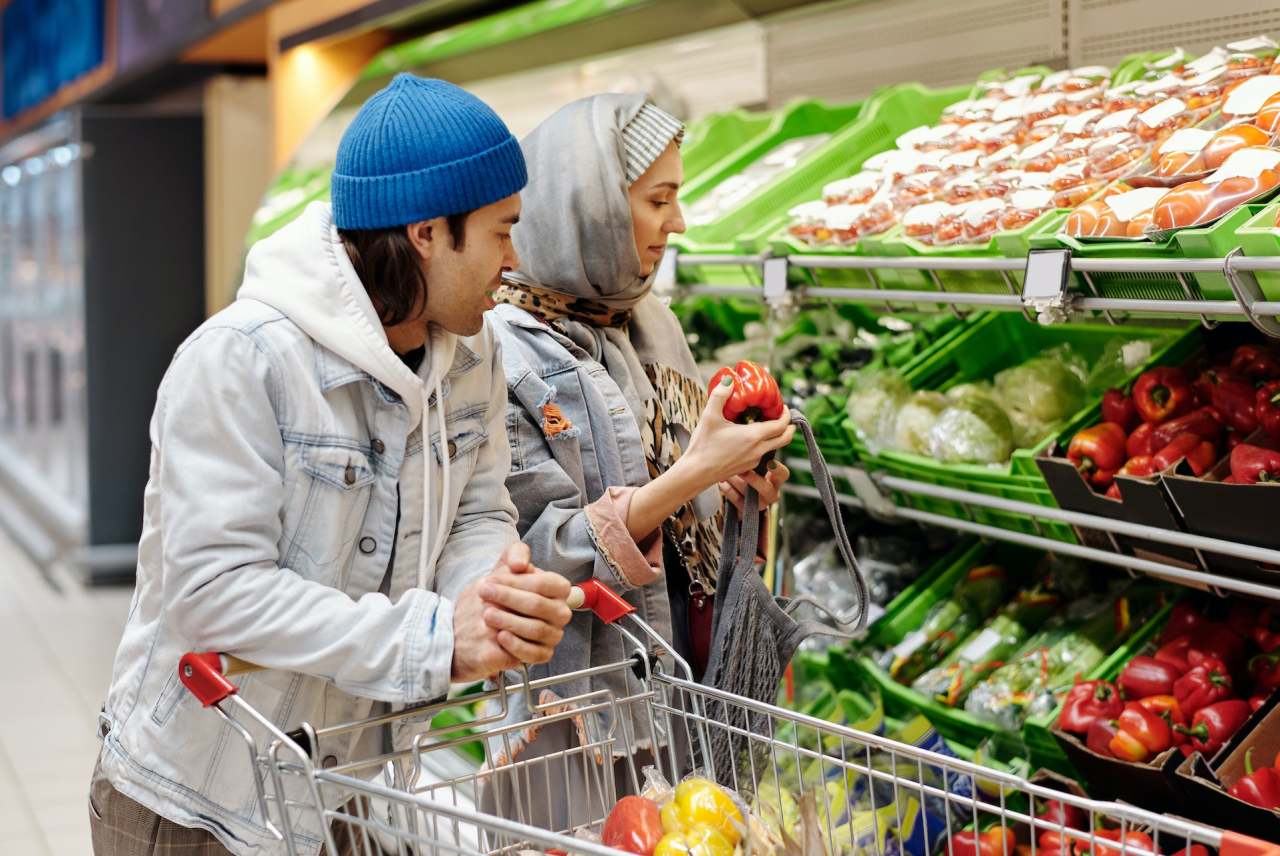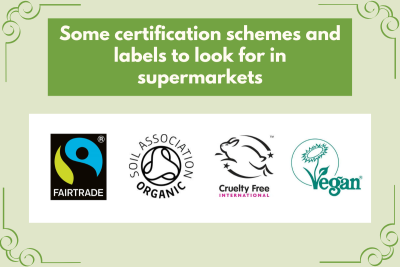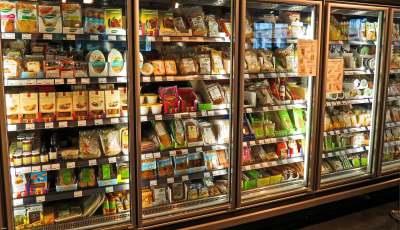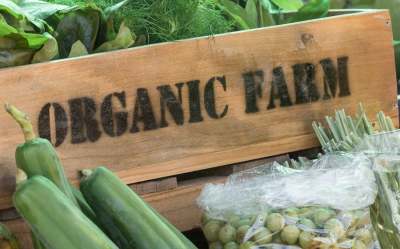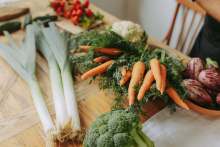Fairtrade
Products like chocolate, sugar, bananas and tea and coffee can all be found fair trade. While there are a number of different labels that claim to show a product has been fairly traded, Fairtrade International’s is the strongest option, and you can find it on a wide range of products.
It shows that workers were fairly treated, and growers were paid a fair price. Fairtrade guarantees a fixed price for produce, which protects growers if markets crash or big buyers try to push prices down. Brands selling Fairtrade have to pay a small premium on top of the sale price, which growers’ cooperatives or estates decide how to spend on social or environmental benefits.
Several of the supermarkets sell some fair trade own-brand products such as own-brand tea and bananas. The Co-op is the UK’s largest retailer of Fairtrade products as well as the world’s largest retailer of Fairtrade wine. All of the bananas it sells and the cocoa in all its products (including baked goods) are Fairtrade, making it easy to know you’re buying ethical options.
Read our article on fair trade and food to find out more about this.
Organic
Buying organic means that the produce or its ingredients were grown without any chemical pesticides or fertilisers. These chemicals are a major driver of biodiversity loss, pollute ecosystems and waterways, and are often made from fossil fuels.
If food is labelled as organic, it has to meet legally binding standards. For cosmetics or other non-food products though, there aren’t the same rules. Look for the Soil Association logo in the UK to find organic options.
Animal welfare certifications
Soil Association Organic is also the strongest option in the UK when it comes to animal welfare for meat, eggs and dairy. It guarantees more space for animals to roam than free range does, and ensures that animals aren’t subject to painful mutilations like having their tails cut or their beaks trimmed.
Unfortunately, free range doesn’t provide the strong assurance we might expect. For example, nine free range chickens can occupy just 1 metre of floor space. That’s like 14 human adults living in a one-room flat. Our shopping guide to eggs and egg alternatives has more information about free range and other terms used for eggs.
Our article on animal rights in the food industry covers a number of certification schemes and labels for fish and animals, including the Red Tractor label which we explain is very weak and not worth looking for.
Leaping Bunny Cruelty-Free
Cosmetics, health and cleaning products sold in supermarkets may be funding animal testing. Although finished products can’t be tested on animals in the UK, lots of companies use animal-tested ingredients or sell in countries where animal testing is allowed or is even mandatory by law (like China).
The Leaping Bunny certification is the strongest label if you want to ensure you are choosing cruelty-free options. However, not all Leaping Bunny products are vegan as they may contain animal ingredients. Read our article about animal testing certification schemes to find out more.
The Vegan Society
Lots of food products are now marked as vegetarian or vegan.
However, it can be much harder to tell if a cosmetic or cleaning product includes animal ingredients. There are a whole host of ingredients that have innocent sounding names but could have been produced from animal products – such as collagen and lanolin.
If a product is marked with the Vegan Society logo, you know that it does not include any of these.
